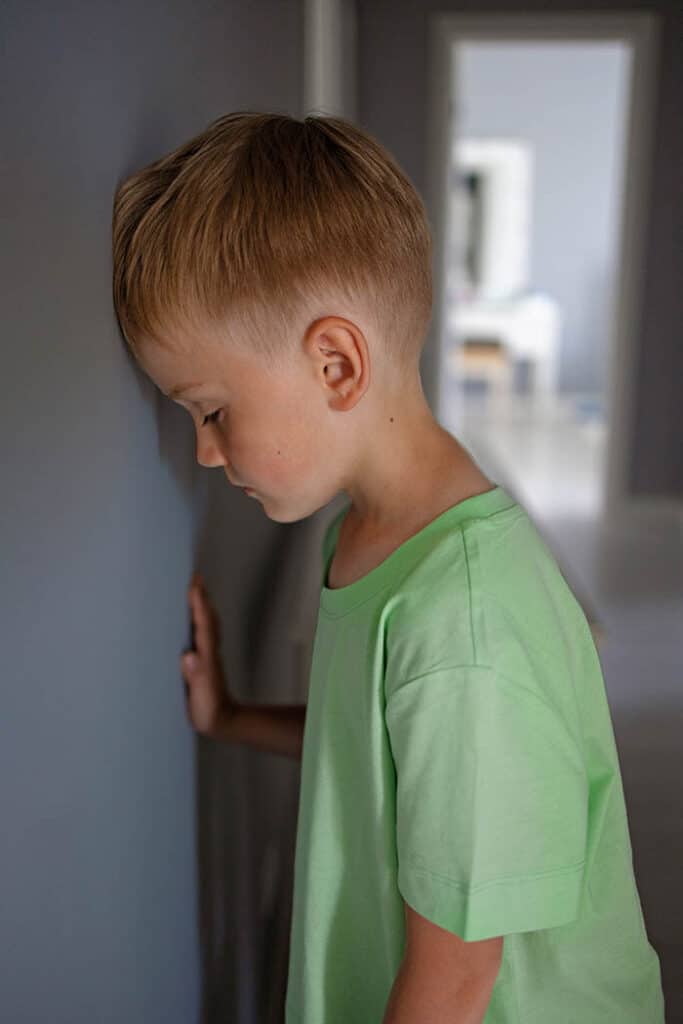If you suspect that your child is cutting or engaging in self-harm, it is important to take the situation seriously and seek professional help as soon as possible. Here are some steps you can take to help your child:
- Talk to your child: Start by talking to your child in a non-judgmental way. Let them know that you are concerned and want to help. Try to understand their reasons for cutting or self-harm, and listen to their feelings without dismissing or minimizing them.
- Seek professional help: It is important to seek professional help for your child. Talk to your child’s doctor, a mental health professional, or a school counselor. They can help you determine the best course of action and provide appropriate treatment.
- Create a supportive environment: Make sure your child feels loved and supported. Encourage them to engage in activities they enjoy and spend time with friends and family. Be patient and understanding as they work through their feelings.
- Remove triggers: Help your child identify triggers that may be causing them to self-harm, such as stress or certain emotions. Try to remove or reduce these triggers if possible.
- Develop coping strategies: Encourage your child to develop healthy coping strategies to deal with stress and difficult emotions. This could include exercise, meditation, or talking to a trusted friend or family member.
- Be patient and supportive: Recovery from self-harm can be a long process, so it’s important to be patient and supportive. Let your child know that they are not alone and that you are there to support them through their recovery.
- Monitor your child’s behavior: Keep an eye on your child’s behavior and check in with them regularly. If you notice any changes or signs of self-harm, seek professional help immediately.

What if my child keeps self harming?
If your child is self-harming, it’s important to take their behavior seriously and seek professional help. Here are some steps you can take:
- Talk to your child: Ask your child how they are feeling and if they are self-harming. Let them know that you are there to support them.
- Seek professional help: Contact a mental health professional such as a therapist, counselor or psychologist who can provide guidance on how to manage self-harm. A doctor can also help assess any physical injuries that may need treatment.
- Create a safe environment: Remove any objects that your child may use to harm themselves and make sure they are not left alone for long periods of time.
- Encourage healthy coping mechanisms: Help your child find healthy ways to manage their emotions, such as exercise, mindfulness, or creative expression.
- Be patient and supportive: Recovery from self-harm can be a long process, so it’s important to be patient and supportive. Let your child know that they are not alone and that you are there to support them through their recovery.
Remember, self-harm is often a sign of underlying emotional distress, and addressing the root causes of your child’s behavior is key to preventing future episodes. Professional support and guidance can help you and your child navigate this challenging process. If you are in the process of waiting for an appointment or finding the right therapist, here are some things you can say to your child:
“I love you and I’m here for you”: It’s important for your child to know that they have your support and that you care about their well-being.
“I’m sorry you’re going through this”: Acknowledge your child’s pain and let them know that you understand how difficult it is for them.
“Let’s find a way to help you feel better”: Help your child find alternative ways to manage their emotions, such as talking to a therapist or engaging in healthy activities like exercise or art.
“It’s okay to ask for help”: Encourage your child to seek professional help if they are struggling to manage their emotions or if they are unable to stop cutting on their own.
“We can work through this together”: Let your child know that you are committed to helping them overcome this challenge and that you will support them every step of the way.
Remember to approach the situation with patience and understanding. Be aware of your discomfort approaching your child about this and approach with kindness. Your child may feel embarrassed or ashamed about their behavior, so it’s important to create a safe and supportive environment where they feel comfortable sharing their feelings and seeking help.
Remember, self-harm is a serious issue that requires professional help. Be patient and supportive as your child works through their feelings and seeks treatment.

Dr. Yaro Garcia
Hello, I am Dr. Garcia, please call me Yaro. My degrees are in clinical psychology and I am a licensed mental health counselor. My approach is caring, warm, safe, non-judgmental, and straight forward. It is a difficult decision to seek therapy, I take time to build a trusting therapeutic relationship with you…
















